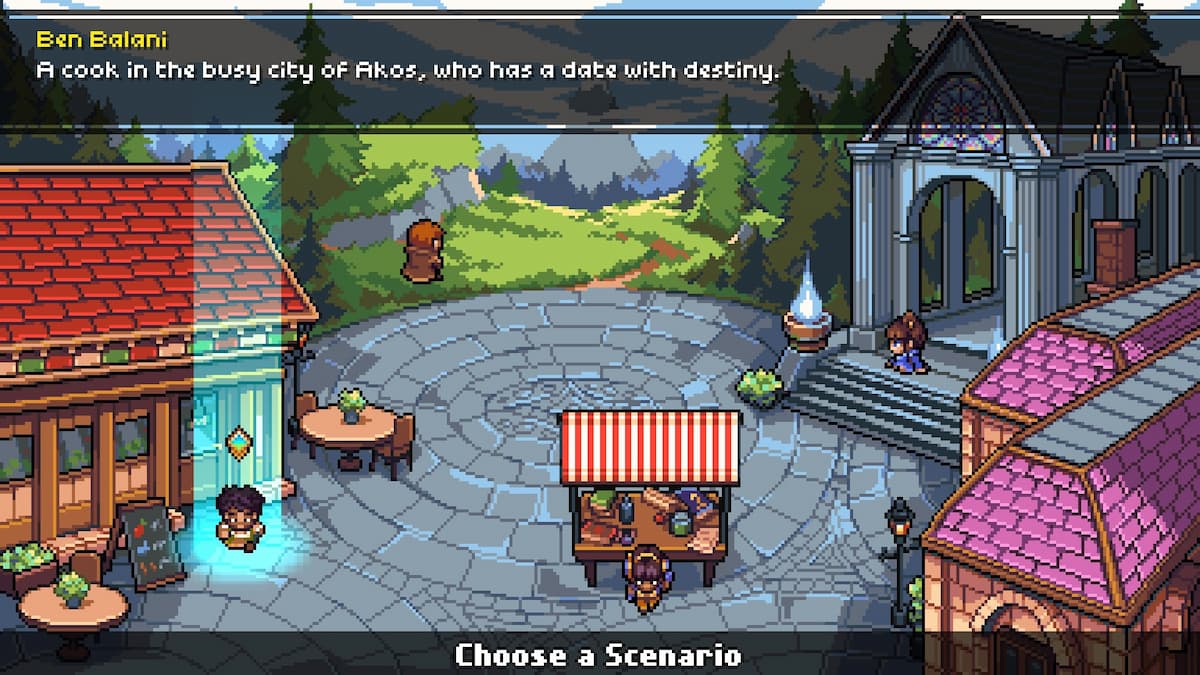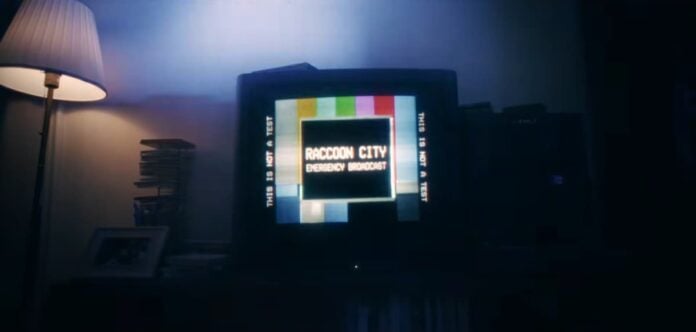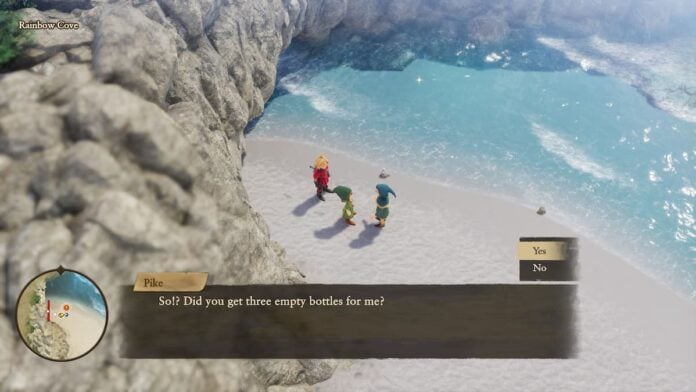Stop me if you’ve heard this one before. Several misfits and weirdos struggle to find their place in the world. One day, they discover that life has more to offer them than they initially thought, and with the use of magic spells and weapons, their paths cross and they embark on a journey to learn more about where their powers come from and maybe even save the world in the process. Turn-based combat. Pixel art. Party of four. Magic attacks. Melee attacks. Quartet is a new pixel art RPG from Something Classic Games, and if you couldn’t already guess from the studio name, these are people who want to recreate the magic of yesteryear RPGs and carve out a place for it in the modern video game landscape.
In some areas, Quartet succeeds. Yet it also suffers from a few drawbacks that feel inevitable at this point, especially with how mature and crowded the RPG genre has become.
But first, the preamble. Quartet starts off simply enough. You get to choose to start with one of four different stories, each one focusing on a single character. As you go through these stories, you’ll eventually amass a group of eight characters and figure out how you’ll fit them into a party of four. It doesn’t matter who you pick first; you’ll need to get through all of their stories eventually.

The one thing that struck me the most was just how different all of these characters were and how they complement each other while catering to different player tastes. Ben, for instance, feels like he belongs in a completely different game. The man is a simple, down on his luck baker who just wants his boss to pay him already. He also happens to look like a total bum and not at all what you’d imagine your typical RPG hero to be. Quartet also loves leaning into its classic tendencies of course, and you’ve got your military commander and aspiring magic student characters to look forward to as well, if that’s your kind of thing.
Whereas something like Octopath Traveler prefers to remain grounded in its characterizations, Quartet isn’t afraid to get a little crazy. Going back to Ben, his introductory cutscene starts with him coming face to face with several mafia baddies who are also going after his boss for money he owes them. The sinister music kicks in as the mafia boss talks. He’s being all menacing, threatening to hurt Ben if the boss doesn’t pay up. Then the music abruptly stops as Ben chimes in saying, “Y’know, he owes me money too. We’re basically on the same side here.” But of course the mafia baddie doesn’t listen; he continues on his monologue as the scary music resumes.
The kind of humor that Quartet enjoys can be pretty hit-or-miss. While I personally didn’t completely vibe with the comedic moments in Ben’s story, for example, I get that your mileage may vary. Plus, that’s the whole reason why there are so many different character stories to play through. There’s something for everyone here.
Where Quartet really shines, though, is in its combat. You won’t find anything particularly revolutionary here; battles are a turn-based affair, and the turn order is clearly indicated on the right side of the screen, a la Final Fantasy X. Enemy health bars are properly indicated onscreen, and there are a whole ton of different skills to use across your roster of eight. Quartet also introduces a few modern touches to the turn-based structure, including the ability to actively swap out party members whenever you want.

Your party can only contain four characters at a time, with the other four in your backlines. While a character’s in the reserves, however, their AP regenerates at an accelerated rate. This means that you can swap them out to unleash a particularly powerful skill, then swap them back in to continue recharging their AP once they’ve done their job. It’s a simple tweak, but it allows you to employ a variety of different strategies to each battle. I will say that this can make Quartet feel a tad easy, but the variety in bosses more than helped to make up for that shortfall.
I suspect the relatively short runtime allows Quartet to feel as dynamic as it does, too, as it never wears out its welcome. If you’re just blazing through the main story and occasionally dabbling in side content and exploration, you can expect to sink about 20 hours into the game, which is certainly on the shorter side for the RPG genre. Still, I had no complaints, particularly since I was never quite able to connect with the story on as deep a level as I’d have liked. The characters, while some are interesting and diverse, aren’t quite enough to prop up a story that can feel a little trite and predictable at times. It also doesn’t help that the pixel art graphics aren’t all that impressive either, and I couldn’t help but feel that perhaps its graphics were unable to match the grandeur of the world that Quartet hoped to portray.
Still, because Quartet is a relatively short game, these are things that are unlikely to bother you even after you’ve rolled credits.
Overall, Quartet is an easy recommendation for RPG sickos who can’t get enough of turn-based combat. The story and characters may not necessarily land for everyone, but if gameplay is king, then Quartet certainly won’t disappoint.
A review code for the game was provided by the publisher. You can check out our review policy here. Reviewed on PC.


